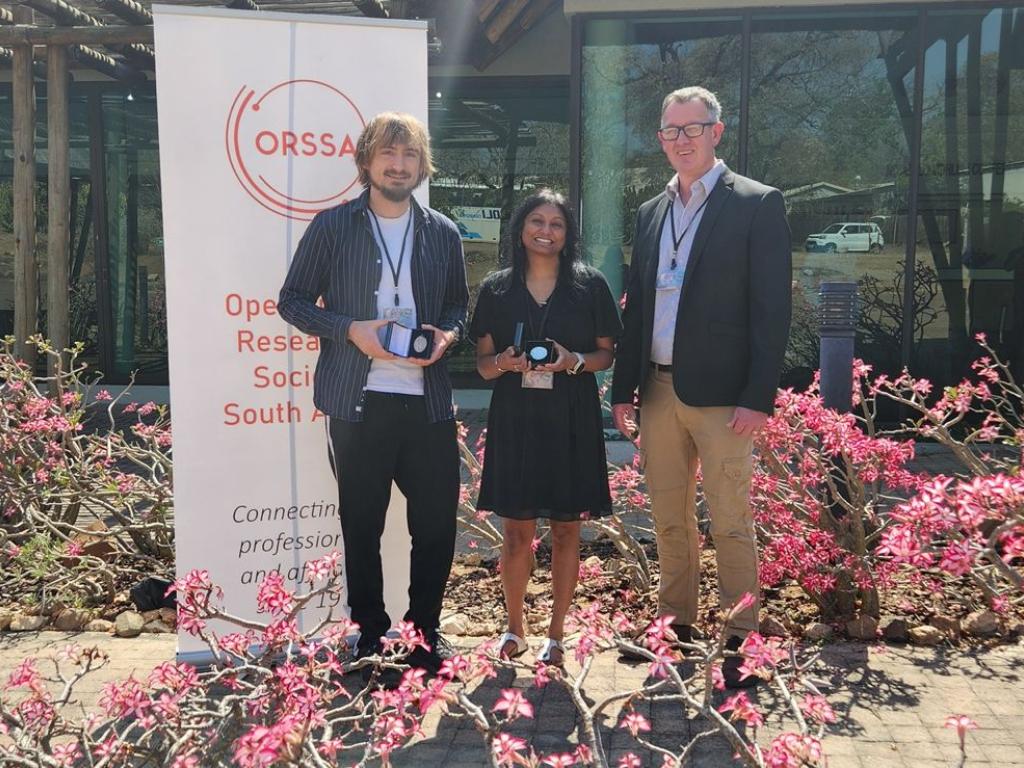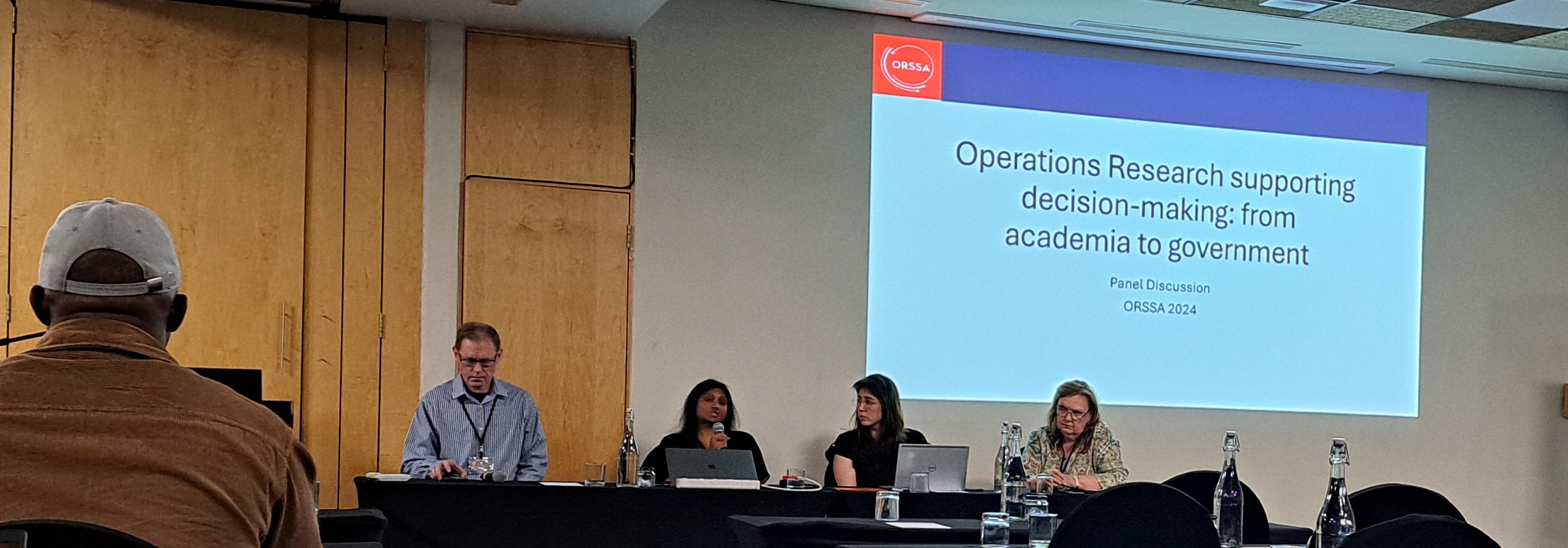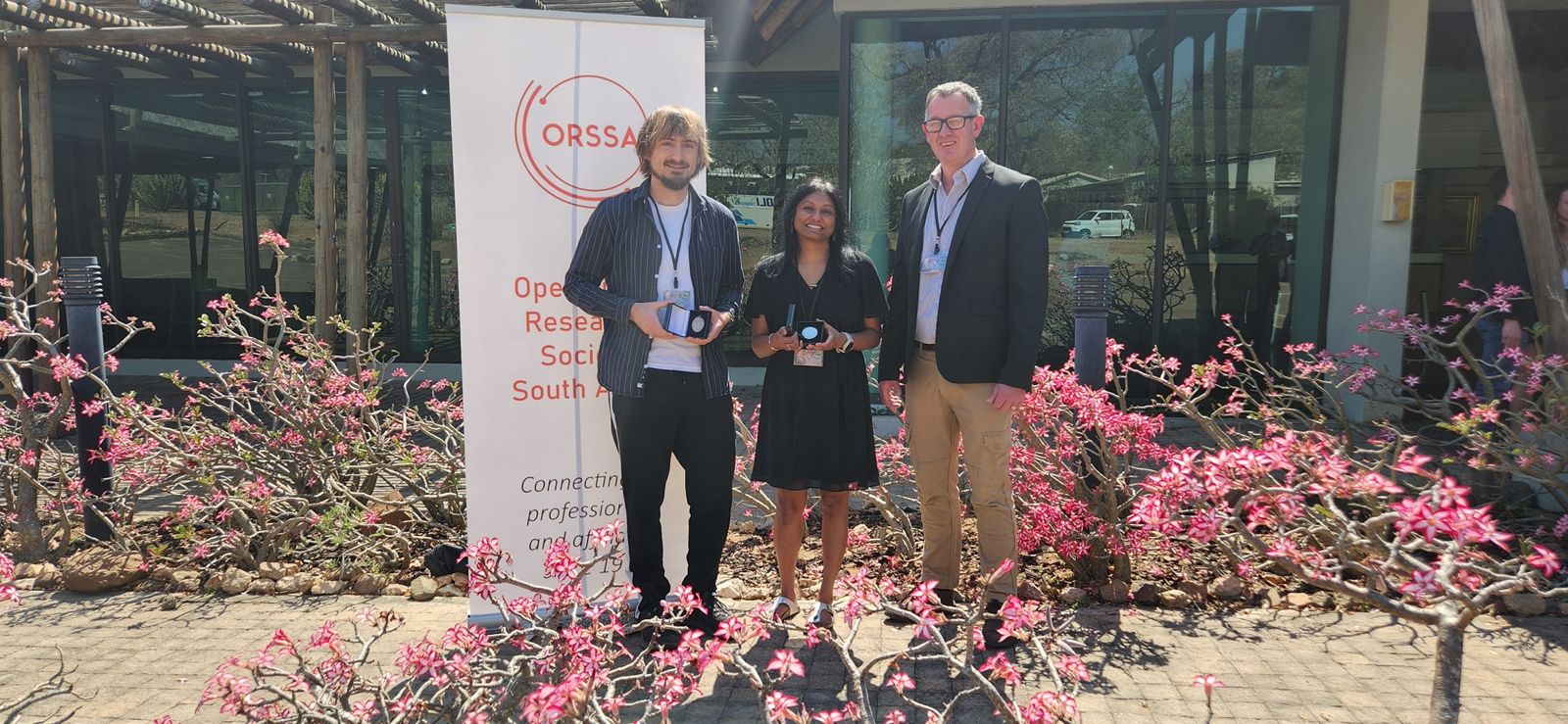Award-winning Operations Research for Public Policy

The 53rd annual Operations Research Society of South Africa (ORSSA) conference was hosted on the 25 to 28th of August in Skukuza Conference hall at the Kruger National Park. The conference was an opportunity for members to share progress in operations research across a range of special interests from the history of operations research in South Africa, quantitative finance, supply chain management, simulation modelling and optimisation, data science, artificial intelligence and operations research for public policy. Operations research aims to aid problem-solving and decision-making for organisations using analytical methods, often transforming data into managerial insights. This is well aligned with efforts at MASHA to support public health decision making, as represented by Retselisitsoe Monyake, Jared Norman, and Sheetal Silal at ORSSA 2024.
The Diphtheria-Tetanus-Pertussis (DTP) Boost tool expands on the DTP web application to explore the health and budget impacts of introducing booster doses targeting these three diseases. The tool also includes the cost-effectiveness of various combinations of vaccines, considering unique contexts and resource constraints across low- and middle-income countries. Retselisitsoe presented the design and technical aspects of the tool and outlined how it can be used to support health policy decisions.
Jared discussed rapid modelling to inform reactive vaccination to a diphtheria outbreak in Nigeria as a case study. The 2022 outbreak disproportionately affected children and adolescents that were unvaccinated or had not received all three doses of the vaccine. Fortunately, the Nigerian government was due to receive batches of the DTP-Hepatitis B-Haemophiles influenzae Type B (Hib) (Pentavalent) and tetanus-diphtheria (Td) vaccine in late 2023 and requested modelling support to inform effective allocation of vaccines to targeted age groups and localities to prevent deaths. For this purpose, MASHA developed a data-driven decision tree in collaboration with the US CDC and other stakeholders. As a result, local government areas were timely ranked for targeted vaccination of affected age groups.
Given the uncharted territory of a global pandemic, a lack of prior understanding of the behaviour of SARS-CoV-2 and the impact of various control measures required to curb disease spread in the population, mathematical modelling provided valuable projections into the future. Models were adapted to the evolving nature of the outbreak, incorporating changes in testing policies, contact tracing and criteria for hospitalisation, and providing insights into the consequences of policy decisions on predicted disease outcomes.
Sheetal provided reflections on the development of the National COVID-19 Epi Model (NCEM) at MASHA, chartering the course of the disease and highlighting how assumptions about the behaviour of the disease evolved and were captured in NCEM. She also emphasised the need for flexibility and adaptability in infectious disease modelling and evidence-based decision making.

To put the icing on the cake, ORSSA, the home of decision intelligence, awarded Sheetal Silal and Jared Norman the Tom Rozwadowski Medal for the best written contribution to operations research published in a peer reviewed journal during the previous year, acknowledging work developing NCEM and contributing to the government’s efforts in the pandemic. The full article, published in PLOS Global Public Health, is available here.

